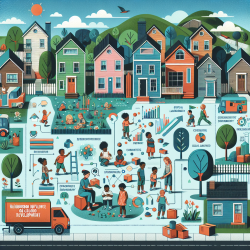Understanding the Pandemic's Impact on Pharmacy Students
The COVID-19 pandemic has disrupted lives worldwide, and its effects on students, particularly in the field of pharmacy, have been profound. A recent study titled "Student Stress, Coping, and APPE Readiness at Two Public Institutions before and during the Pandemic" sheds light on how the pandemic influenced pharmacy students' stress levels, coping mechanisms, and practice readiness.
Key Findings from the Research
The study compared third- and fourth-year pharmacy students from the pre-pandemic Class of 2019 with the mid-pandemic Class of 2021. The primary aim was to evaluate the pandemic's effects on students' perceived stress and coping strategies using the Perceived Stress Scale (PSS) and the Brief Coping Orientation to Problems Experienced (COPE) scale.
- PSS scores were significantly higher in mid-pandemic students compared to their pre-pandemic counterparts, indicating increased stress levels.
- The Brief COPE avoidant coping subscale showed differences between the two groups, with mid-pandemic students exhibiting more avoidant behaviors.
- Interestingly, there were no significant differences in academic and professional development skills between the two groups.
- Mid-pandemic students demonstrated improved confidence levels in practice readiness compared to pre-pandemic students.
Implications for Practitioners
As practitioners, understanding these findings can enhance your approach to supporting students during challenging times. Here are some actionable insights:
- Address Stress and Coping: Recognize the heightened stress levels among students and offer resources to help them develop effective coping strategies. Encourage open communication and provide mental health support.
- Focus on Confidence Building: Despite increased stress, mid-pandemic students showed improved confidence in practice readiness. Implement programs that build confidence through practical experiences and mentorship.
- Promote Resilience: The lack of impact on academic skills suggests that students possess resilience. Foster this trait by creating a supportive learning environment that encourages adaptability and problem-solving.
Encouraging Further Research
While this study provides valuable insights, further research is needed to explore the long-term effects of the pandemic on student well-being and professional development. Practitioners are encouraged to collaborate with educational institutions to conduct longitudinal studies that can inform future educational strategies.
To read the original research paper, please follow this link: Student Stress, Coping, and APPE Readiness at Two Public Institutions before and during the Pandemic.










